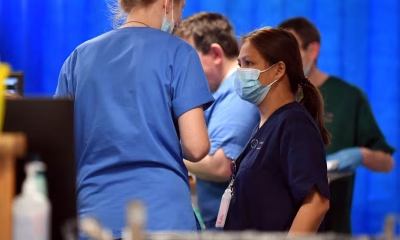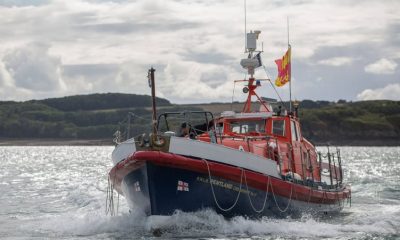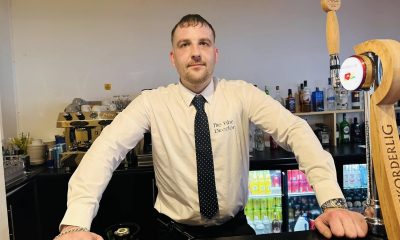Community
My remembrance

 FOR many , Remembrance Day is more than a commemoration of the thousands of men who gave their lives for our freedom. Men whose stories we hear but will never get to meet. For many of us, it marks a personal tribute to the men of our own families whose lives and innocence was lost and whose bravery must never be forgotten. This year marks the centenary of the First World War and the strength and courage of those men is more poignant than ever. This is my remembrance for the three generations of my family who fought in the First and Second World Wars. My Great Grandfather, George, was a Dockyard worker who spent his spare time repairing clocks. Like many of the young men he was called up with, he had no idea of what War would be like, of the conditions he would live in and the terrible things he would see. He was proud to be fighting for his country, so he left his home in Devon to become a soldier in WW1.
FOR many , Remembrance Day is more than a commemoration of the thousands of men who gave their lives for our freedom. Men whose stories we hear but will never get to meet. For many of us, it marks a personal tribute to the men of our own families whose lives and innocence was lost and whose bravery must never be forgotten. This year marks the centenary of the First World War and the strength and courage of those men is more poignant than ever. This is my remembrance for the three generations of my family who fought in the First and Second World Wars. My Great Grandfather, George, was a Dockyard worker who spent his spare time repairing clocks. Like many of the young men he was called up with, he had no idea of what War would be like, of the conditions he would live in and the terrible things he would see. He was proud to be fighting for his country, so he left his home in Devon to become a soldier in WW1.
He was part of the machine gun co, spending most of his service in the trenches. He was also involved in the Battle of Somme in 1916 which is most likely where he sustained his injuries. He was lucky not to be one of 58,000 troops killed during the battle. I don’t remember much about Great Granddad, except that he was very quiet and watchful. He never talked about the war or its effects on him. My Granddad, Robert, was a bricklayer and keen motorcyclist from Devon. When he was enlisted, he offered his services as a bricklayer.
There wasn’t any need for builders so he began infantry training in 1942. He later became a motorcycle Dispatch Rider (military messenger), serving for 5 years in North Africa, Italy and Palestine in several antitank regiments. Granddad kept a diary, a very frank account of what he saw and felt during the War. He was badly injured when a passing shell hit a farm house on the road he was walking down. Throwing himself to the ground, he remembers being littered with debris and a sharp pain in his back. It was later found that shrapnel from the shell had gone into his back, leg and shoulder.
This was removed in an operation but years later he could still feel small pieces of shrapnel in his knee and finger. Like many soldiers, Granddad wrote home to his family during the War. We discovered these letters after he’d passed away. There was also a prayer book, with an inscription inside by my Great Grandfather. This little book came safely through World War 1… Darling Bob, hoping you will come safely back to us.
The letters are heartfelt exchanges between a worried mother and a brave son. My Great Gran talks of my Great Grandfather ‘fire watching’ and the ‘Yanks’ nearly running her over in their Jeeps. Also the terrible silence as my Great Granddad works on his clocks and she sits with nothing to do but wait and worry. My Grandfather reassures her that he is well, requesting small items of comfort and to pass on his good wishes to friends at home. On leaving the War, Granddad wrote his diary entries into a book which I typed up for him and he had printed in 2008. Sadly he passed away in 2011, but I will never forget the tall man, who talked modestly about the war, cracked jokes at his own expense and loudly banged the side of the chair in time to the band on the Festival of Remembrance.
My Dad’s Great Uncle John Harris, affectionately known as Jack, left his family in LLanfrynach, Brecon in 1914. He joined the machine gun co and was heavily involved in front line battle. He died in a POW camp in Belgium in Sep 1918 just weeks before the Armistice. My Dad’s Uncle still has the letter from the British Red Cross announcing his death. In 2010 my family travelled out to France, to find the War Grave of Jack. They talk about the rows of grave stones, looking out over the Channel and the way they are beautifully kept by the locals. I think this was a cold realisation of all the lives lost, the Sons, Brothers, Fathers and Grandfathers who will never come home.
I am proud of my family’s military history and of the men and women who continue to fight for us. November 11 is a day to remember these people and the way they suffered to give us the freedom we enjoy today. We should never lose sight of that, of what it means to be alive, to share compassion. It’s the only way we can ever truly be thankful.
Community
New corporate member joins Narberth & Whitland Rotary
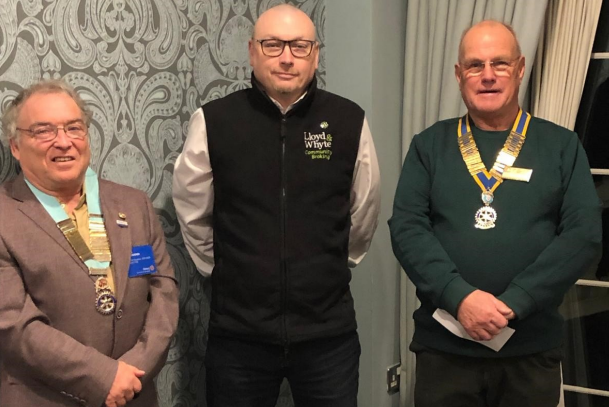
NARBERTH & Whitland Rotary has welcomed its first Corporate Member.
On Wednesday (Feb 11), Stephen Vale, Insurance Broker Manager with Lloyd & Whyte in St Clears, was formally inducted at the club.
The induction ceremony was carried out by South Wales District Governor Ian Hughes, following an introduction by Narberth & Whitland Rotary President Robin Bradbury.
Corporate Membership recognises the increasing emphasis businesses place on corporate social responsibility, enabling companies to give back to their local communities through Rotary’s established structures and projects.
Rotary says corporate membership also offers opportunities for staff development, leadership experience, and involvement in fundraising and volunteering activities that deliver tangible benefits to the community.
Pictured (left to right): South Wales District Governor Ian Hughes, Corporate Member Stephen Vale, and Narberth & Whitland President Robin Bradbury.
Community
Second Milford Haven webcam launched after 1.3m views and US TV feature
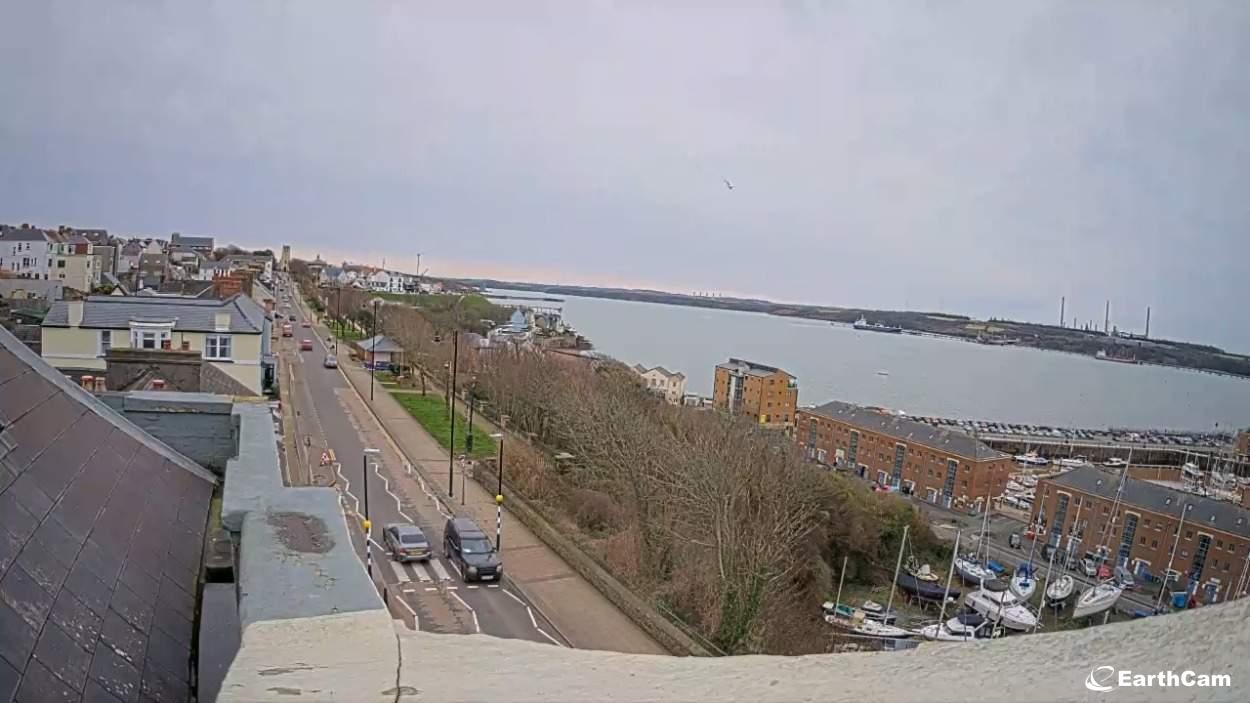
Twin live feeds from Herald roof now showcase both marina and Milford Haven Waterway
A SECOND live webcam overlooking Milford Haven has gone live from the roof of 11 Hamilton Terrace — home of The Pembrokeshire Herald — expanding the town’s growing global digital footprint.
The original harbour-facing camera, streamed worldwide via EarthCam, has already clocked up more than 1,300,000 views. It even featured on ABC News in the United States, where the Milford Haven view was broadcast live ahead of a national weather forecast.
That first stream — listed on EarthCam as “Wales Waterway” — looks across Milford Marina and the busy lower reaches of the Haven, capturing ferry departures, commercial shipping, leisure craft and the changing light across the Pembrokeshire skyline.
Now, a second camera has been added, offering a complementary perspective further up the Milford Haven Waterway towards the Cleddau.
A global window on Wales’ largest port
The new feed captures daily activity along the largest port in Wales — from the twice-daily Wales–Ireland ferry sailings to petroleum, oil and gas tankers moving more than 60 million tonnes of cargo each year. Thousands of smaller vessels, from yachts to powerboats, also pass through the Waterway annually.
Together, the two cameras provide twin live perspectives of one of the UK’s most strategically significant maritime corridors.

As dawn broke over Milford Haven this morning, the Waterway lay still beneath a clear sky, the first light spilling across rooftops and masts before stretching out over the wide expanse of the Haven.
From the vantage point of Hamilton Terrace, the scene felt both intimate and expansive — a quiet town waking gently while a major working port prepared for another day of movement and industry.
It is moments like these that help explain the worldwide appeal of the EarthCam streams. Viewers tuning in from across the UK, Europe and North America are not simply watching ships pass; they are witnessing the rhythm of tide and trade, the sweep of weather systems, and the subtle beauty of West Wales unfolding in real time.
From dramatic winter steam plumes rising from power station chimneys to calm summer sunsets over the marina, Milford Haven’s live feeds have become a constantly changing digital canvas.
Watch live
Original harbour view (1.3 million+ views):
https://www.earthcam.com/world/uk/wales/?cam=waleswaterway
New up-the-Waterway view:
https://www.earthcam.com/world/uk/wales/?cam=waleswaterway2
The Herald hopes the second camera will prove just as popular — continuing to put Milford Haven on the global map, one sunrise at a time.
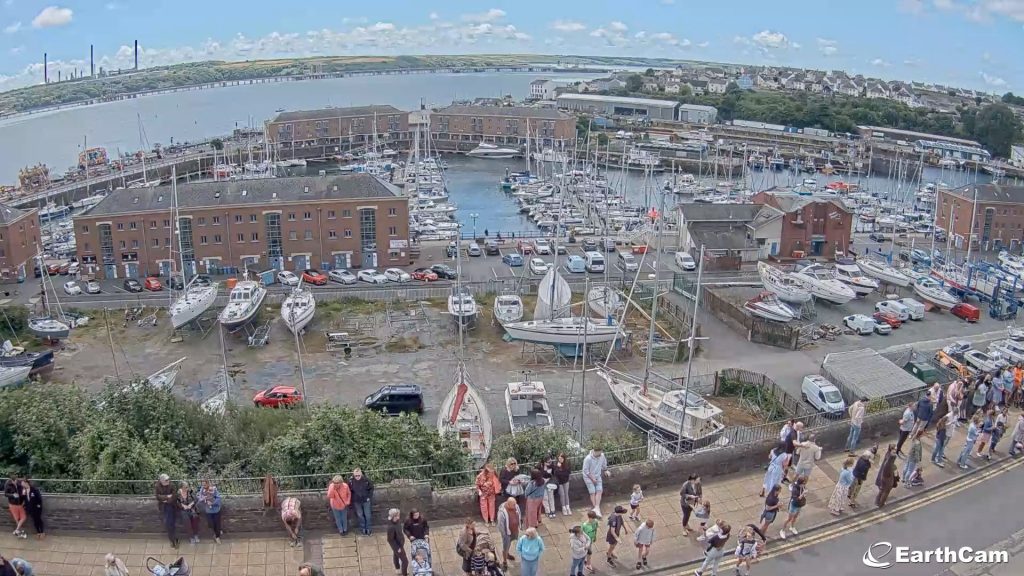
Community
Young people shine at Pembrokeshire Spotlight Awards

YOUNG people from across the county were recognised for their courage, talent and community spirit at this year’s Pembrokeshire Spotlight Awards.
The fourth annual celebration, organised by Pembrokeshire Youth, the Children and Young People’s Rights Office and Pembrokeshire County Council Children’s Services, honours children and young people who achieve exceptional things and make a real difference in their communities.
Originally planned for November, the event was postponed due to severe weather but successfully went ahead on Thursday (Feb 6) at the Merlin Theatre, Pembrokeshire College, thanks to support from sponsors BAM Nuttall, Milford Haven Port Authority, Pure West Radio and Ascona Group.
Councillor Marc Tierney, Cabinet Member for Young People, Communities and the Wellbeing of Future Generations, praised those taking part.
He said: “It was a privilege to hear how our young people have triumphed within their own lives and within their communities. Huge thanks go to the organisers and sponsors who made this celebration possible.”
Chair of council Cllr Maureen Bowen added: “The evening was a joy to attend. It highlighted the incredible talent of Pembrokeshire’s young people and gave real hope for the future of the county.”
The ceremony opened with a video message from First Minister Eluned Morgan, who offered her congratulations despite being unable to attend in person.
Award winners
Among those recognised on the night were:
- Welsh Language – Emma Nicholas
- Fundraising – Ben Stanton (winner); Jack Gray and Milford Haven Youth Council (runners up)
- EcoChampion – Tomos Roberts
- Achieving Positive Change – Alfie Harper (winner); Amber Allerton and Thomas John
- Arts – Dawn Clark (winner); LillieMai Radcliffe and Kali Flux
- Education – Yuliia Bedyk and Andrii Volkov (joint winners); Courtney Waugh and Leo Credland
- Making a Difference in the Community – Off The Streets Youth Forum (winner); Megan Mathias, Kyra Mottram, Lexi Jenkins and Pembrokeshire Youth Assembly
- Most Inspiring Story – Kai Williams (winner); Carly Sharif, Caitlin Griffith and Berat Sahin
- Music – Dylan Harwood (winner); Toby Draper and the cast of Bugsy Malone 2025 – Ysgol Harri Tudur
- Sports – Samantha Barton (winner); Mary Falconer, Alannah Field and Destiny John
- Voice – Young Voices for Choices Youth Forum
- Young Leader/Peer Mentor – Caiden Meacham (winner); Amélie Houghton and Brooke Jenkins-McNamara
Overall Spotlight Award
The top honour went to the We Know Our Journey Youth Project, a collaboration between the You Should Know Girls Project and His Path His Journey Boys Project.
The group was recognised for promoting inclusion, challenging harmful attitudes and encouraging open conversations around violence against women and girls, domestic abuse and men’s mental health.
Members organised the countywide “Men Make It Safe” event and raised £1,600 for local mental health and domestic abuse charities through a sea swim and a 10k run involving 24 young participants.
Judges said the project demonstrated the powerful role young people can play in creating positive change.
Thanks and support
Organisers thanked presenters, nominators, performers and supporters, along with staff at Pembrokeshire College and event leads Nadine Farmer, Bethany Roberts, Nicky Edwards and Angie Moore. Businesses including National Grid, Princes Gate, Tan y Castell, Greggs and The Vine also backed the evening.
More information is available via the Children and Young People’s Rights Office social media pages.
-
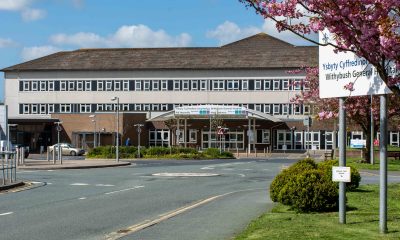
 Health3 days ago
Health3 days agoHealth Board to decide future of nine key services at two-day meeting
-

 Business5 days ago
Business5 days agoComputer Solutions Wales under fire from customers
-

 Charity6 days ago
Charity6 days agoWelsh patient voices help shape new UK-wide online kidney forum
-
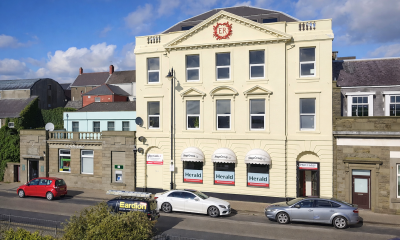
 Community4 days ago
Community4 days agoFacebook ‘news’ site targeting Herald editor collapses after community backlash
-

 Community5 days ago
Community5 days agoCalls for traffic calming in Neyland after car hits house
-

 Crime1 day ago
Crime1 day agoFour arrested in armed police operation across Pembroke Dock
-

 News6 days ago
News6 days agoFresh concerns over £60m A40 scheme after resurfacing works just months after opening
-

 Crime5 days ago
Crime5 days agoWoman admits two shop thefts and banned from town supermarkets










